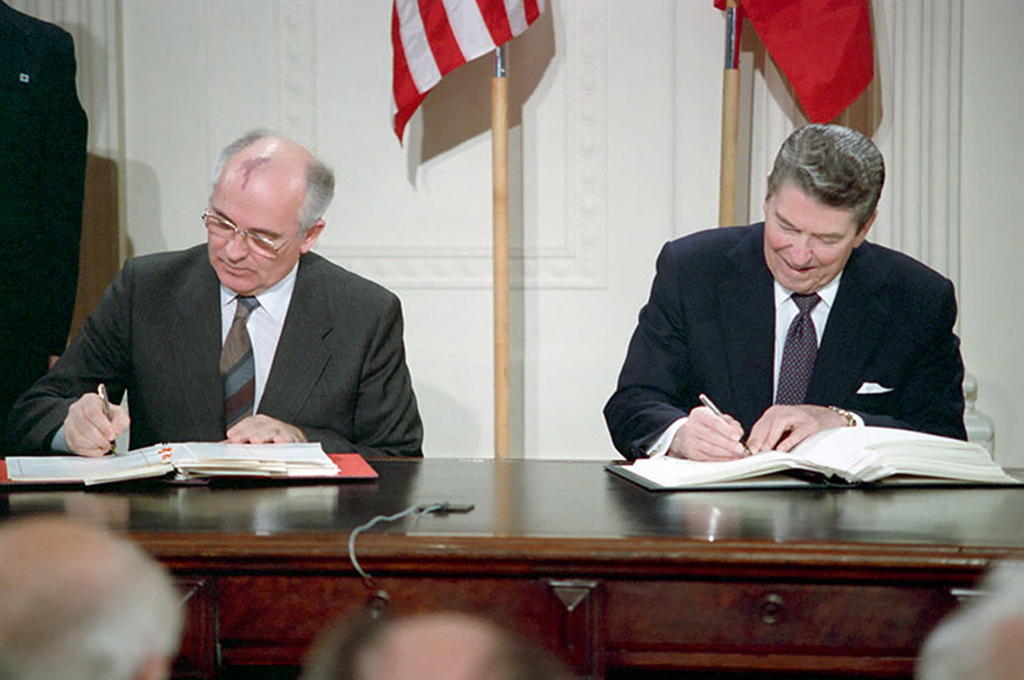
Switzerland regrets the suspension of INF nuclear treaty

The Swiss foreign ministry says it deplores the fact that the United States and Russia have been unable to find a solution to resolve their dispute over the Intermediate-range Nuclear Forces (INF) treaty. On Friday, the Trump administration said it was withdrawing from the key arms treaty.
Donald Trump has confirmed that the US is leaving the INF treaty, saying “we will move forward with developing our own military response options” to Russia’s suspect missile.
In a written statement, Trump said the US would be suspending its compliance with the 1987 treaty on Saturday and would serve formal notice that it would withdraw altogether in six months. The US president says the treaty can be salvaged during that period, but only if Russia destroys all its violating missiles, launchers and associated equipment.
The US accuses Moscow of violating the Cold War-era pact by continuing to develop banned missiles. The INF treaty, signed in 1987, has been a centrepiece of superpower arms control. Some analysts worry its demise could fuel a new arms race.
In a statement, the Swiss foreign ministry defendedExternal link the international arms control instrument, saying it had “contributed significantly to European security since its adoption in 1987”.
The ministry urged both parties to “immediately clarify existing differences regarding a potential non-compliance with the treaty and to refrain from withdrawing”.
Switzerland hopes both countries will use the six-month transition period starting on February 2 to retain the INF treaty as a central element of European security.
“A new arms race is in nobody’s interest. The foreign ministry calls on all states to preserve the established arms control treaties and to work towards preventing further armament and proliferation,” it said.
Secret development
Trump has accused Russia of secretly developing “a prohibited missile system that poses a direct threat to our allies and troops abroad”. He said the US had adhered to the INF treaty since it was signed in 1987, but Russia has not.
“The position of the American side is very tough and like an ultimatum,” Russian Deputy Foreign Minister Sergei Ryabkov told the Russian state news agency Tass on Friday, adding that there had been no progress after talks in Beijing the day before.
The US alleges a new Russian cruise missile – the Novator 9M729 missile, known as the SSC-8 by the North Atlantic Treaty Organization (NATO) – violates the INF prohibition of missiles with ranges between 500km and 5,500km.
Russia for several years denied the missile existed but has more recently acknowledged its existence, saying its range does not violate INF limits. It says the missile’s range puts it outside the treaty, and has accused the US of inventing a false pretext to exit a treaty that it wants to leave anyway so it can develop new missiles. Russia also has rejected a US demand to destroy the new missile.
Kremlin spokesman Dmitry Peskov told reporters on Friday the US had been unwilling to discuss the issue.

In compliance with the JTI standards
More: SWI swissinfo.ch certified by the Journalism Trust Initiative





























You can find an overview of ongoing debates with our journalists here . Please join us!
If you want to start a conversation about a topic raised in this article or want to report factual errors, email us at english@swissinfo.ch.